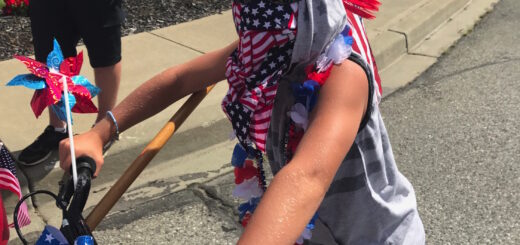Fish War documentary gives insights into Boldt decision from a Native American perspective
At long last, there is a powerful documentary that tells us the other side of the fish war that pitted the State of Washington and the commercial fishing industry against Native American tribes that had retained fishing and hunting rights in treaties with the federal government dating back to the 1850s.
Fish War, a film produced by Northwest Treaty Tribes Media and Wenatchee-based North Forty Productions, gives viewers the Native American perspective of the violence against tribal fishermen and activists and the impact of the monumental 1974 decision handed down by U.S. District Court Judge George Boldt. Boldt ruled that the treaty provided for an equal share of the resources and that the tribes could take up to 50 percent of the harvestable salmon in the state.
Indigenous Roots and Reparations Foundation, a local nonprofit dedicated to preserving Native American history, culture, traditions and language, is hosting a public showing of the documentary on Thursday, June 27, 7 p.m. at the Numerica Performing Arts Center. Tickets are $12 and can be purchased at numericapac.org.
Mary Big Bull-Lewis, the founder and chair of IRRF, said the film’s messages are important and align with the mission of her organization.
Boldt’s ruling changed the way the state and tribes worked together to protect salmon. While the ruling recognized the rights of the tribes to fish, salmon runs have been depleted through habitat destruction, climate changes and other factors.
Fish War debuted at the Seattle International Film Festival this spring and the audience reaction was striking, said Jeff Ostenson, who heads North 40.
“We were asked to help the tribes tell their story to non-tribal folks,” Ostenson said. “We don’t profess to speak for the tribes and we don’t even pretend to understand,” he added.
“What I really wanted for this film was to show any person in the Northwest that treaty rights are a real net benefit to everyone,” said Ostenson. He pointed out that the Lummis fought successfully to prevent a coal company from constructing a coal terminal on Bellingham Bay. The trains, which leave a trail of coal dust, would have gone through Seattle, Tacoma and, on the return trip, even Wenatchee. That coal dust has carcinogens, said Ostenson.
His takeaway from the Fish War project is that the tribes are “still fighting for the planet, to make it a better place and to decrease the damage we’ve done,” he added.
Big Bull-Lewis said the work of IRRF was started “because it is important to take up space where space was not made or even recognized as being missing” she said. Racism and social injustices are rampant, she said. Furthermore, commercialization of natural resources has continued, she told me.
“We need to live in reciprocity with the land, versus the continued profiting and exploitation of stolen lands,” she added.
The fish war started after the state of Washington limited tribal fishing to their reservations rather than the usual and accustomed fishing places as prescribed by the treaties of 1854 and 1855.
The tribes protested and were met with violence and arrests when they tried to exercise their treaty rights. One of the key activists was Billy Frank Jr.
In the film, his son Willie Frank III, said the war continues. “The Fish War isn’t over,” he said. ““Instead of fighting over fish, we are fighting for the fish – to keep them on this planet.”
The treatment of Native Americans in this country in the past few centuries has been abysmal. Treaties have been broken, Native American children were taken from their homes and placed in mission schools, stripped of their names, language and culture.
Watching the film is a disturbing experience as it shows what was being done to Native Americans fifty years ago. But hearing the other side of the story is important to fully understand the human cost and suffering.
“We are still here,” says Big Bull-Lewis.

